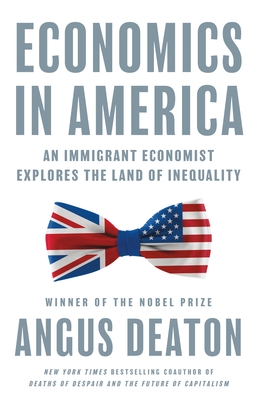
The Wealth and Poverty of Nations: Why Some Are So Rich and Some So Poor
Book Description
What if the secret to wealth and prosperity lies hidden in the fabric of culture and history? In "The Wealth and Poverty of Nations," David S. Landes unravels the intricate tapestry of economic triumph and despair, revealing the forces that elevate some nations while leaving others in the shadows of struggle. Through riveting narratives and shocking statistics, he examines the clash of innovation, resources, and ambition that shape societies. As the world races toward globalization, what lessons will emerge from the past, and can they rewrite the future of prosperity for all?
Quick Book Summary
"The Wealth and Poverty of Nations" by David S. Landes is a sweeping exploration of why some countries flourish while others remain mired in poverty. Landes investigates the historical, cultural, geographical, and institutional factors that have led to global disparities in wealth. Challenging conventional economic theories, he argues that cultural attitudes—towards work, innovation, time, and progress—play a decisive role in a nation’s prosperity. The book traces centuries of economic development, highlighting the impact of inventions, colonialism, and differing social structures from the Middle Ages through the Industrial Revolution and into the modern age. Ultimately, Landes offers a nuanced understanding of how historic decisions and cultural values continue to shape economic destinies in an increasingly interconnected world.
Summary of Key Ideas
Table of Contents
Geography, Resources, and the Environment
David S. Landes begins by analyzing geography and environment as significant, but not determinative, factors in shaping the destinies of nations. He details how access to resources like coal, navigable rivers, and arable land fostered early industrialization and allowed some regions to leap ahead economically. However, Landes notes that while natural endowments help, they are not destiny. Some resource-rich nations remain poor, while resource-scarce nations have prospered, indicating that other forces are equally, if not more, important.
Culture and the Spirit of Innovation
A major theme is the decisive role of culture in economic outcomes. Landes traces how attitudes towards work, thrift, learning, and innovation differentiated societies. Protestant Europe’s embrace of literacy and work ethic, for example, created an atmosphere where experimentation and progress thrived. Contrasting this with societies burdened by fatalism or rigid social hierarchies, Landes shows how cultural openness to change is vital for sustained economic growth.
Institutions, Law, and Governance
Institutions come under close examination as Landes discusses how political structures, legal systems, and governance have fostered or hindered development. He argues that stable property rights, transparent legal systems, and mechanisms for accountability are crucial for investment and innovation. In states where corruption or autocracy reigned, economic progress was consistently stunted. The book draws rich comparisons between countries that nurtured inclusiveness and fair governance, and those plagued by extractive institutions.
Colonialism and Global Disparities
Landes tackles the complex legacy of European colonialism, explaining how it both spread modern technology and entrenched global inequalities. Colonizers often imposed exploitative structures that persist in former colonies, affecting institutional and cultural norms long after independence. The consequences of colonial rule, along with the varying ways nations responded to globalization and external pressures, help explain current disparities in wealth and development.
Lessons from Economic History
The book concludes with broader lessons drawn from historical trajectories. Landes urges contemporary societies to look beyond resources and policies, highlighting that success is often grounded in adaptability, openness to innovation, and robust institutions. He warns that failure to learn from history’s patterns—especially regarding the importance of culture and good governance—will perpetuate poverty and hinder progress. The book leaves readers with a deep appreciation of the complex roots of economic success and the ongoing relevance of history in shaping our shared future.
Download This Summary
Get a free PDF of this summary instantly — no email required.





